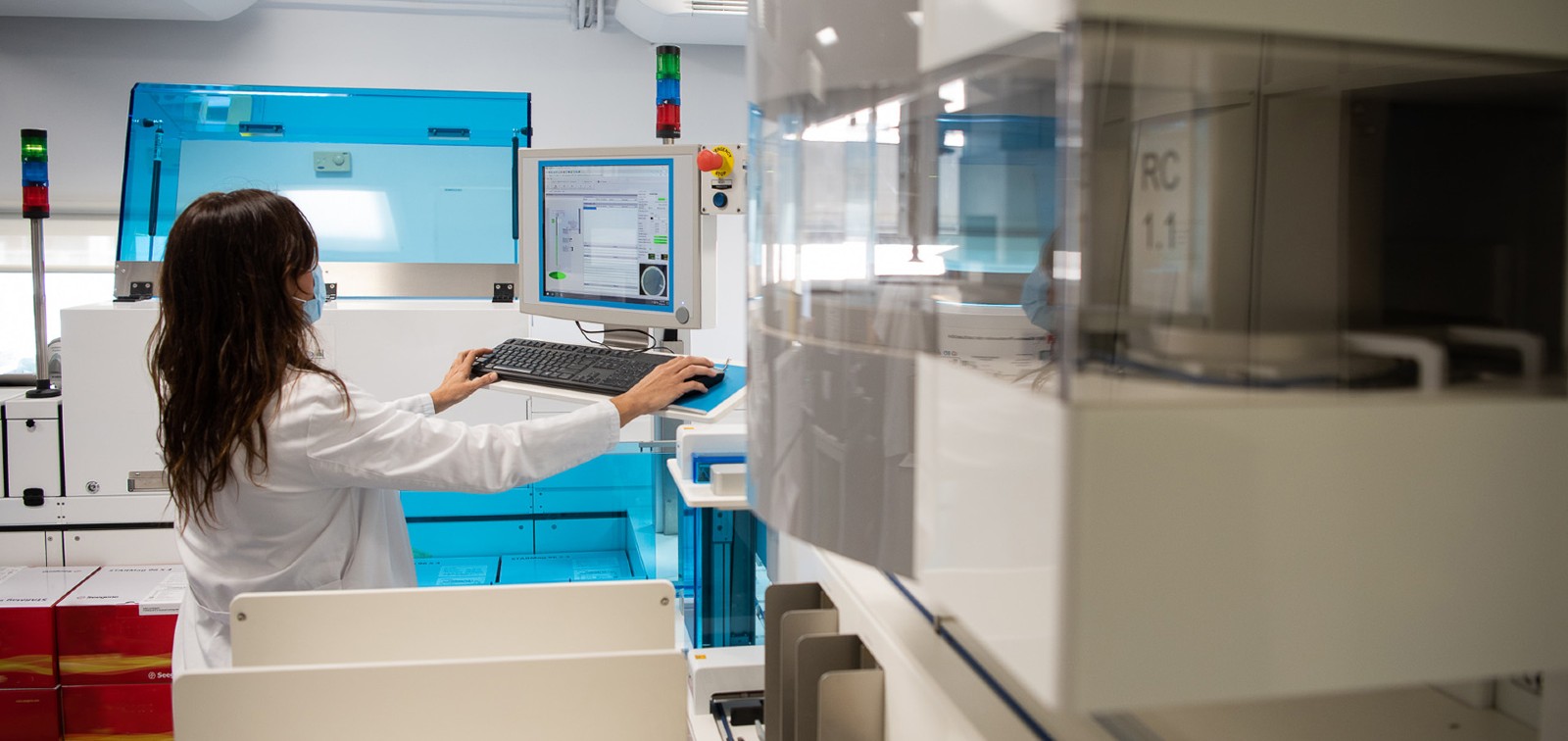Rapid Reporting of Microbiology Results is Key to the Prognosis of Patients with Blood Infections
Research led by Clínic-IDIBAPS and ISGlobal concludes that the delay in the arrival of information on the type of bacteria is associated with an increase in mortality
25.05.2023
Rapid reporting of the results of a microbiological examination for an infection is as important as having rapid diagnostic technologies to detect it. This is the conclusion of a study by researchers at the Hospital Clínic-IDIBAPS and the Barcelona Institute for Global Health (ISGlobal) published in the journal Clinical Infectious Diseases. The article demonstrates the importance of having specialists in microbiology and infectious diseases 24 hours a day and 7 days a week, to improve the prognosis of patients with infections in the bloodstream.
The study was coordinated by Dr. Climent Casals, Consultant of the Clinical Microbiology Service at the Hospital Clínic and researcher at ISGlobal, a centre supported by the “la Caixa” Foundation, and CIBERINFEC. Other specialists from the same team and from the Infectious Diseases Service of the Hospital Clínic and IDIBAPS also participated in the study.
Bloodstream infections still have a high prevalence worldwide, with an associated mortality rate of between 15 and 30%. Several studies indicate that the rapid identification of these infections and the immediate administration of appropriate treatment are essential for patient survival.
In recent years, a major effort has been made to develop diagnostic tests to reduce the time it takes to identify the microorganism causing the infection. “This aspect is key to making a rapid diagnosis of the infection, but another important point is missing: what to do when there is rapid diagnostic information available but there is no one to transmit the information or to act accordingly”, explains Climent Casals.
The objective of this study was to determine whether there was an effect of the delayed laboratory information on the prognosis of patients.
The study consisted of the retrospective analysis of 6,225 patients with bloodstream infection at the Hospital Clínic Barcelona, to assess the impact of reporting or not reporting results during the night and to determine the importance of real-time information to be taken into account when allocating resources.
In the initial analysis of the results, which included all the microorganisms that cause infection, no differences were observed in patient prognosis between real-time information of the results or when there was a delay.
On the other hand, by analysing only fast-growing bacteria, such as enterobacteria, the results show that the delay in the arrival of the information obtained in the microbiology laboratory on the type of bacterium is associated with an increase in mortality. Thus, the information provided in real time has prognostic relevance, and improves the survival of patients with a bloodstream infection.
“The Hospital Clínic is a tertiary hospital that has a good level of coverage and has a team of specialists in infectious diseases and microbiology who work 24 hours a day and 7 days a week to identify and monitor all patients with a bacterial infection”, says Climent Casals. “However, despite this coverage, we have seen an effect on mortality in some of the cases of bacteraemia, which suggests that if what we have observed in our hospital is real, the lack of this coverage in other hospitals may affect the prognosis of the disease”, he adds.
“Thus, with the results we have observed, more studies are needed to corroborate this association and determine the need for 24/7 coverage in this area”, concludes Dr. Casals.
Reference
Fidalgo B, Morata L, Cardozo C, Del Río A, Morales J, Fernández-Pittol M, Martínez JA, Mensa J, Vila J, Soriano A, Casals-Pascual C. Information delay of significant bloodstream isolates and patient mortality: A retrospective analysis of 6,225 adult patients with bloodstream infection. Clin Infect Dis. 2023 Apr 26:ciad243. doi: 10.1093/cid/ciad243.



